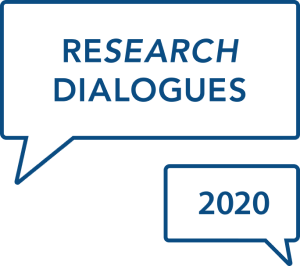
Day 2, April 15 - Posters
Start Date
15-4-2020 1:00 PM
End Date
15-4-2020 3:00 PM
Publisher
University of Tennessee at Chattanooga
Place of Publication
Chattanooga (Tenn.)
Abstract
The present study utilized a three-part longitudinal quasi-experimental research design to measure employee’s levels of implicit person theory, color blind racial attitudes, modern sexist attitudes, and perceptions of social norms to determine the effectiveness of an ally skill-skill building workshop and its impact on behavioral intentions over time. Results suggest that an ally skill-building workshop may be effective in bringing awareness to racism which then influences intentions to display allyship behaviors over time. Precaution should be taken, as increasing racism awareness may in turn allow employees to be more aware of potential negative social norms within their respective departments. Additionally, sexist attitudes did not change over time nor influence allyship behaviors. Further, it seems that employees are becoming more open-minded to diversity management initiatives as racism awareness, sexist attitudes, and levels of implicit person theory did not influence their reactions to the workshop. Overall, results suggest that an ally skill-building workshop may support allyship development via cognitive learning and behavioral techniques to influence more inclusive environments within an organizational setting.
Date
4-15-2020
Document Type
posters
Language
English
Rights
http://rightsstatements.org/vocab/InC/1.0/
License
http://creativecommons.org/licenses/by/4.0/
Recommended Citation
Wymer, Chelsea and Zelin, Alexandra, "Investigating the Perceptions and Effectiveness of an Ally Skill-Building Workshop". ReSEARCH Dialogues Conference proceedings. https://scholar.utc.edu/research-dialogues/2020/day2_posters/107.
Investigating the Perceptions and Effectiveness of an Ally Skill-Building Workshop
The present study utilized a three-part longitudinal quasi-experimental research design to measure employee’s levels of implicit person theory, color blind racial attitudes, modern sexist attitudes, and perceptions of social norms to determine the effectiveness of an ally skill-skill building workshop and its impact on behavioral intentions over time. Results suggest that an ally skill-building workshop may be effective in bringing awareness to racism which then influences intentions to display allyship behaviors over time. Precaution should be taken, as increasing racism awareness may in turn allow employees to be more aware of potential negative social norms within their respective departments. Additionally, sexist attitudes did not change over time nor influence allyship behaviors. Further, it seems that employees are becoming more open-minded to diversity management initiatives as racism awareness, sexist attitudes, and levels of implicit person theory did not influence their reactions to the workshop. Overall, results suggest that an ally skill-building workshop may support allyship development via cognitive learning and behavioral techniques to influence more inclusive environments within an organizational setting.

